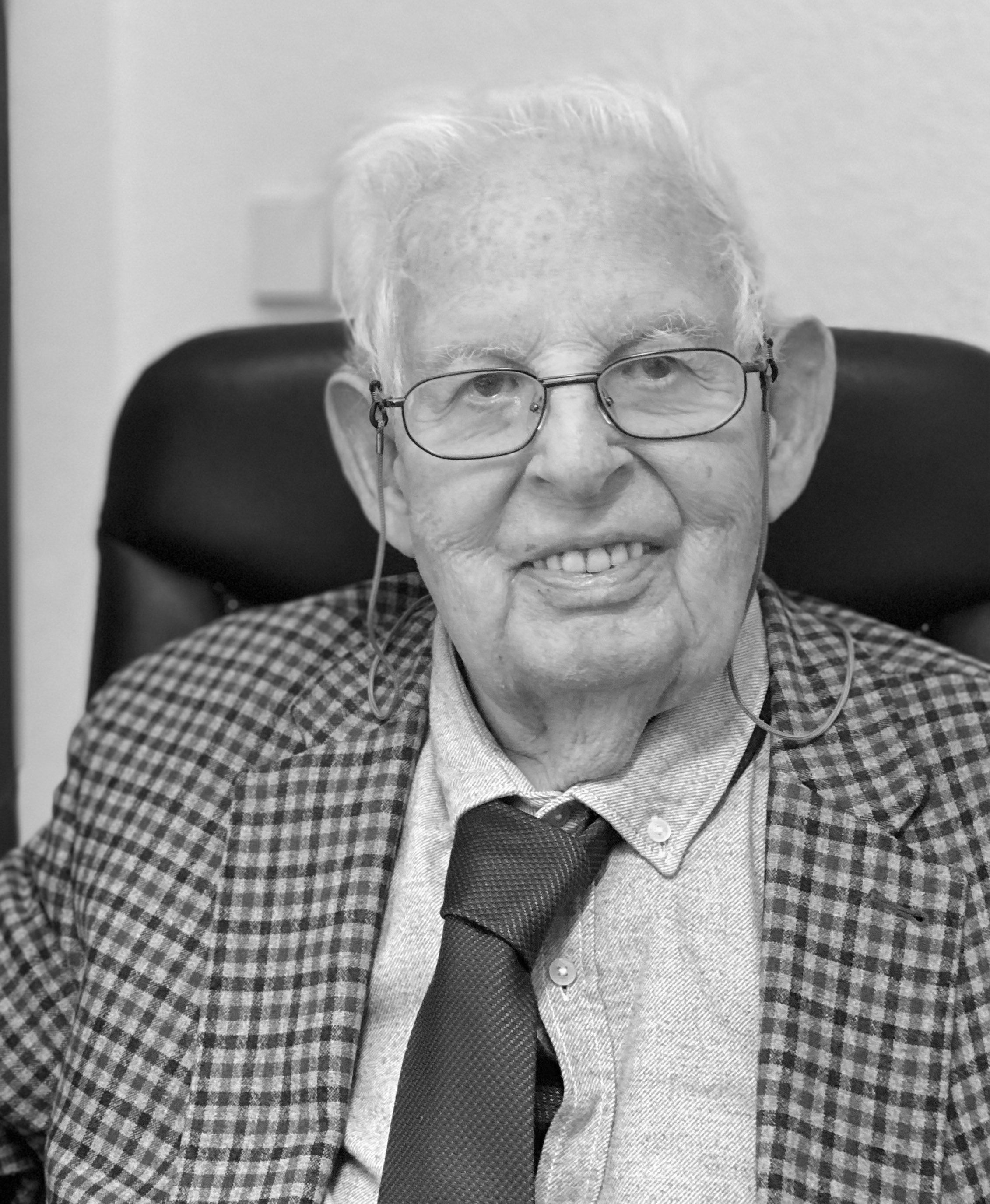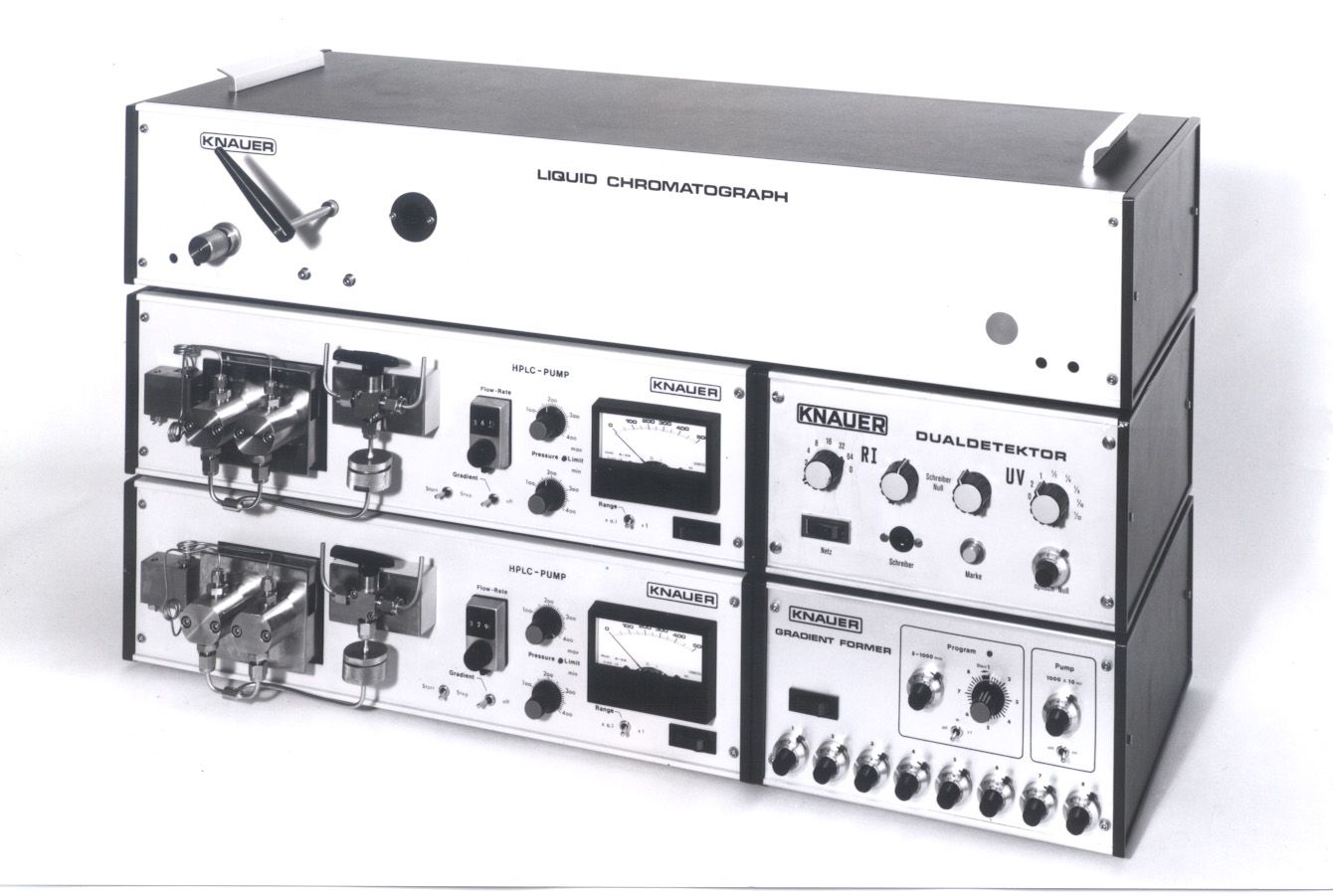Knauer Founder Dies at 92
Herbert Knauer founded his namesake laboratory equipment company with his wife Roswitha in Berlin in 1962.
Herbert Knauer | Image Credit: © Knauer

Herbert Knauer, founder of Knauer, the Berlin, Germany-based laboratory equipment company, died peacefully at home on Thursday, January 18, according to a press release. He was 92.
Knauer was born in Berlin in 1931 and obtained his doctorate in engineering in 1958, the release said, staying on as a research assistant at the Technical University of Berlin until he and his wife, Roswitha, launched the Knauer company on October 1, 1962.
In a little more than a decade, Knauer grew his operation from a home-based business into a Berlin office that is still the company headquarters. The headquarters quickly became known as a development hub for modular high performance liquid chromatography (HPLC) systems.
Modular Knauer HPLC system, 1974 | Image Credit: © Knauer

Knauer transferred all his company shares to his daughter, Alexandra Knauer, in 2000, but continued to serve his company in an advisory capacity. Under Alexandra Knauer’s leadership, the Knauer company has branched out into areas of production such as lipid nanoparticles for active mRNA ingredients, and increased its workforce nearly threefold.
Carsten Losch, the company’s managing director, gave a brief statement in the press release in memoriam.
"For me, Dr. Knauer is not only our founder and an important thinker for the company who has passed away, but also an exceptionally open personality,” Losch said. “He was a mentor and advisor to me, someone with whom you could discuss ideas and gain new perspectives. Dr. Knauer was always willing to pass on his enormous wealth of knowledge and experience.”
Herbert Knauer was married to wife Roswitha for 61 years, and “enjoyed his daughters and six grandchildren who lived nearby,” according to the release.
Reversed-Phases for LC Deliberately Doped with Positive Charge: Tips and Tricks for Effective Use
May 13th 2025In this month's edition of LC Troubleshooting, Dwight Stoll and his fellow researchers discuss both the benefits (improved peak shape/loading) and challenges (excessive interaction) associated with charge-doped reversed-phase (RP) columns for both analytical and preparative separations.
Investigating 3D-Printable Stationary Phases in Liquid Chromatography
May 7th 20253D printing technology has potential in chromatography, but a major challenge is developing materials with both high porosity and robust mechanical properties. Recently, scientists compared the separation performances of eight different 3D printable stationary phases.
Characterizing Polyamides Using Reversed-Phase Liquid Chromatography
May 5th 2025Polyamides can be difficult to characterize, despite their use in various aspects of everyday life. Vrije Universiteit Amsterdam researchers hoped to address this using a reversed-phase liquid chromatography (RPLC)-based approach.

.png&w=3840&q=75)

.png&w=3840&q=75)



.png&w=3840&q=75)



.png&w=3840&q=75)






